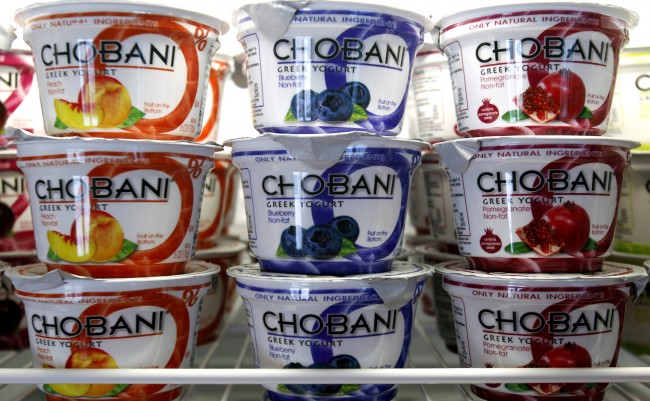
The Remarkable Chobani – Whole Foods Fight
You don’t see manufacturers and retailers attack each other very often. Everyone has an interest in keeping disputes hidden from view.
Today, Chobani and Whole Foods are fighting a nasty battle.
Here is the story. Whole Foods announced yesterday that it was kicking Chobani out of its stores. The reason, according to an article in the Wall Street Journal, was “to make more room for smaller, exclusive brands, especially those that are organic, or don’t contain genetically modified ingredients.”
Whole Foods basically said Chobani, a spectacularly successful brand, wasn’t actually so special after all.
Chobani responded by saying Whole Foods wasn’t very important, either. Chobani’s founder and CEO, Hamdi Ulukaya, declared “Of course I would love to be available everywhere, but it won’t hurt our business.”
He explained to the New York Times, “I come from a dairy farming part of Turkey and grew up with yogurt and eating this simple kind of food, and when I came here I couldn’t understand why in order to find good-tasting yogurt you have to go to some specialty store to find it. So the foundation of my business model and my philosophy is that we are going to make yogurt that is delicious, nutritious and accessible to everyone.”
In other words, Chobani is accusing Whole Foods of being expensive and elitist.
This is brutal.
Whole Foods says Chobani isn’t healthy or special. Chobani says Whole Foods is an irrelevant niche business for rich people.
So what is going on?
Behind this dispute is the fact that Chobani and Whole Foods are facing serious business issues. After years of spectacular growth, they are both struggling to defend.
Whole Foods is dealing with a host of competitors eager to portray the brand as expensive. Whole Foods is clearly concerned about this because it is now focusing much of its marketing budget on an economy message. For example, I received an email the other day from my local Whole Foods pointing out all the low prices. This is a questionable move and indicates that the executives at Whole Foods believe they are vulnerable.
Chobani is struggling with competition, too. The big yogurt brands ignored Chobani early on but now they are fighting back. Dannon, in particular, is defending aggressively and effectively.
The brands then collide.
Whole Foods doesn’t want to carry the standard Chobani flavors because it is very easy for people to compare prices. Whole Foods has three options. It can match Target and Costco on pricing, which destroys its margins, carry unique items that are not easy to compare on pricing or drop the brand entirely.
Chobani doesn’t want to invest money to produce unique items for Whole Foods, especially as it deals with the onslaught from Dannon.
Dannon will do whatever Whole Foods wants. The company is panicked about Chobani and eager to please. I suspect if Whole Foods wanted to buy yogurt in a container made from organic carrots Dannon would be happy to provide it.
The result is one of the nastiest competitive battles I’ve seen in a long time.
It will be fun to watch how this all unfolds over the next several months.
Tim,
In 2017 Chobani had 36% of all Greek Yogurt sales and $2Billion in sales and Whole Foods announcing it will be launching the 365 stores. Who would you say has won this battle? I would argue Chobani stayed true to its brand, innovated and developed a sustainable competitive advantage while Whole Foods was left defending without much innovation.
Archita—Chobani has clearly done well. I wonder, though, about the current situation. Chobani is currently giving away millions of dollars worth of free yogurt. This is not a typical move for an established business. It suggests the brand is now struggling as new competitors attack. This will be an interesting category to watch.